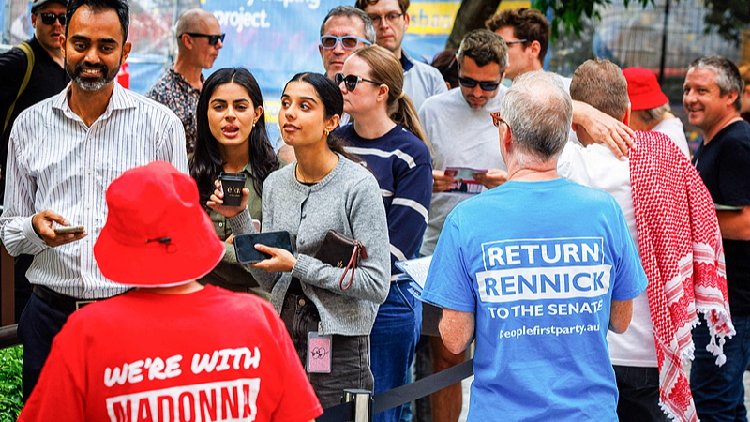Australian Prime Minister and Opposition Leader Deliver Last Appeals to Voters
On the eve of Australia's general election, the prime ministerial candidates made their final appeals to voters. Incumbent Prime Minister Anthony Albanese, representing the Labor Party, and opposition Coalition leader Peter Dutton campaigned...

Incumbent Prime Minister Anthony Albanese, representing the Labor Party, and opposition Coalition leader Peter Dutton campaigned throughout the country on Friday to garner support ahead of election day on Saturday.
Albanese traveled to Queensland, Victoria, and Tasmania, aiming to become the first leader of either major party to secure consecutive victories since 2004.
During a press conference in Brisbane on Friday morning, he declared that the Coalition's campaign has shown that the conservative party is "just not ready" to form government.
"Australia deserves better and I'll give them better," he stated.
While opinion polls consistently indicate that Labor is likely to win a second term, there are varying projections about whether the party will achieve a clear majority of the 150 seats in the House of Representatives or if it will need support from minor parties and independents to establish a minority government.
Despite being behind in the polls, Dutton, who campaigned in South Australia and Western Australia on Friday, expressed confidence in his chances, recalling how the Coalition defied opinion polls to retain power in the 2019 election.
"I think there will be some big surprises on election night," he shared with Australian Broadcasting Corporation radio.
In his final appeal to voters, Dutton promised at a press conference in Western Australia that life would be "cheaper" for Australians under a Coalition government.
Should neither Labor nor the Coalition secure a clear majority in the lower house, the left-leaning Greens, the country's third-largest political party, may hold the balance of power. The Greens currently have four seats in the lower house.
Data from the Australian Electoral Commission revealed that as of Thursday, 5.6 million of Australia's 18 million registered voters had already voted at pre-poll locations, with an additional 1.5 million returning postal ballots.
This represents the highest number of early votes recorded in Australian history, surpassing the previous record set in 2022, with Friday—typically the biggest day for early voting—yet to be accounted for.
A survey conducted by the ABC called Vote Compass indicated that respondents ranked cost of living, the economy, government operations, climate change, and housing as the most significant electoral issues.
More than 90 percent of respondents believed it is harder for today's young Australians to buy a home compared to previous generations, while 49 percent indicated that Australia should accept many or somewhat fewer migrants, with 16 percent advocating for a higher migrant intake.
In contrast, the same survey prior to the 2022 election found that 49 percent of Australians believed the country should welcome many or somewhat more immigrants.
Frederick R Cook for TROIB News
Find more stories on Business, Economy and Finance in TROIB business












